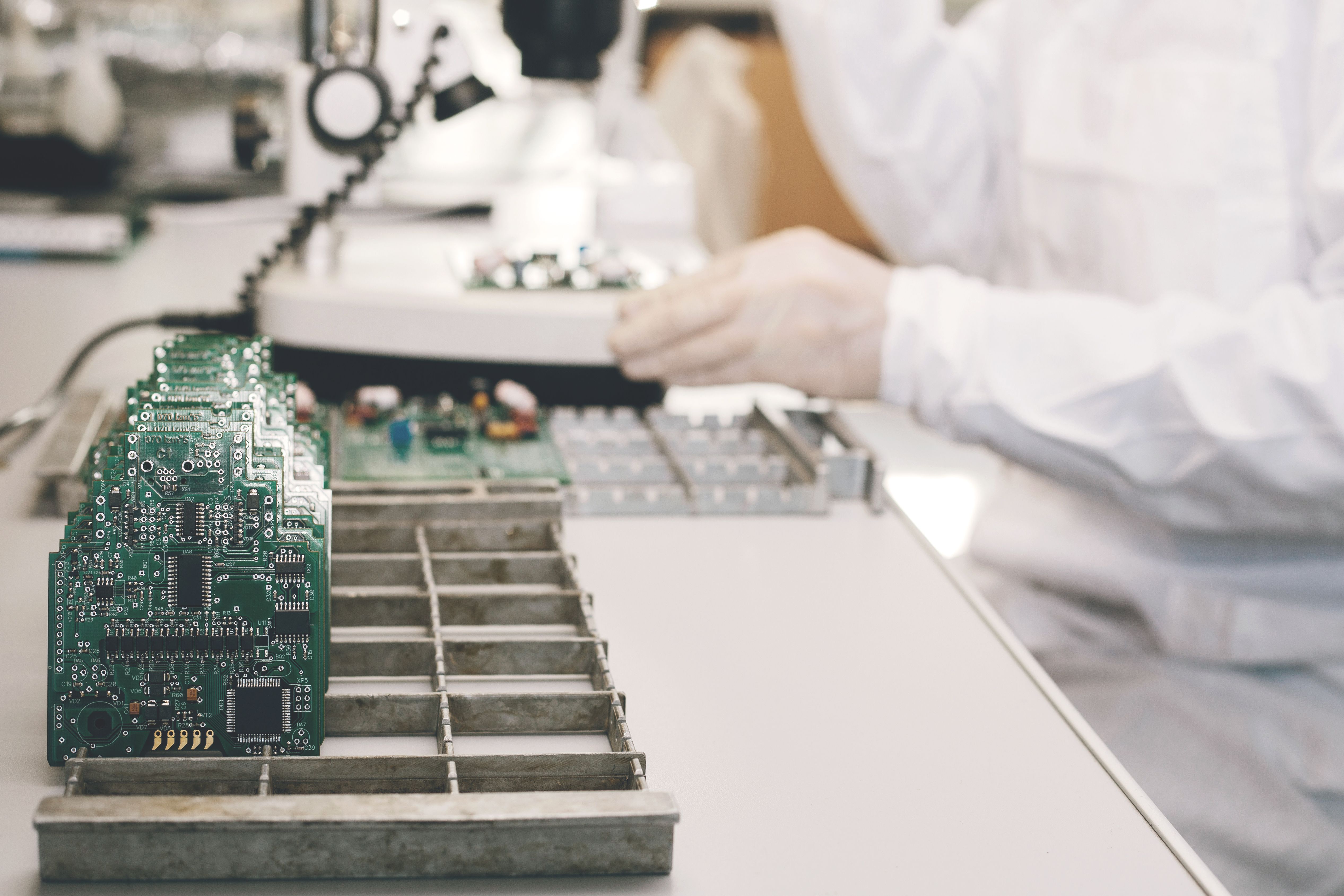How to grow your electronics manufacturing business in 2019

Manufacturing remains critically important to both the developing and advanced world of technology. Electronics manufacturers are a vital source of innovation and competitiveness, contributing to research and development, exportation and the UK’s productivity growth.
The next era of global growth and innovation report by McKinsey predicts that by 2025 there will be a rich pipeline of innovations in materials and processes - from nanomaterials to 3-D printing to advanced robotics which will create fresh demand and drive further productivity gains across manufacturing industries.
With this in mind, UK electronics manufacturers should seek new ways to nurture and grow their businesses.
Rachael Dent, Head of Operations at Redline Group discusses research on how electronics manufacturers are growing their businesses in 2019 and beyond.
Changes in consumer demand, the nature of products, the economics of production, and the economics of the supply chain have led to a fundamental shift in the way electronics manufacturers do business. New market entrants with access to new tools can operate at a much smaller scale. While large-scale production will always dominate some segments of the value chain, innovative manufacturing models—distributed small-scale local manufacturing, loosely coupled manufacturing ecosystems, and agile manufacturing—are arising to take advantage of these new opportunities. Manufacturers will need to be flexible and adaptable to keep up with constantly evolving electronics demands. Strategic partnerships will help electronics manufacturers control costs.
“It’s all about investing in the right equipment, combined with technology and people,” says Rachael. “Today’s modern manufacturing facilities are increasingly relying on new technologies, such as automation and innovations to improve operations and produce higher quality electronic products at a faster speed.”
All manufacturing businesses can’t simply jump on the bandwagon with new technology. The potential applications of robotics on the manufacturing assembly line, for example, aren't always the best fit for the complex and widely varying needs of electronics manufacturing projects. There is still much to be gained through the introduction of new technologies if they can justify a business need and if it improves efficiency and costs.
The use of 3D printing is also creating a new innovative tool. It has been shown to provide great results in aiding manufacturing and production jobs. 3D printing technology has developed and grown faster than most other technologies due to the way it can influence manufacturing processes. 3D printing has opened up new opportunities for production jobs, engineering and R&D jobs. For example, producing prototypes in-house can create efficiencies during the product design stage. 3D printing enables a faster turnaround of design iterations, speeding up the design validation stage. By developing products much faster, electronics manufacturers gain a competitive advantage and achieve more flexible manufacturing.
Streamlining material storage and retrieval systems can also the key to growing your business. If materials can move through the manufacturing facility more quickly and efficiently, this can have a significant impact on production. Investing in automated storage and retrieval systems can help maximise space and minimise handling costs. Finding ways to streamline and simplify the storage and access of materials for production also offers the added advantage of freeing up more of your existing floor space for manufacturing.
Ultimately, the future of manufacturing lies in the hands of technology and skilled professionals working in sync in order to be successful and profitable. The investment in the right people is crucial. There are a growing number of recruitment strategies to address the issue, having realised the real enabler to business success today is not just technology, it is the highly skilled manufacturing professionals.
Women in manufacturing: A common-sense way of closing the skills gap
Addressing the lack of women in manufacturing is not only the right thing to do, but it is also a common-sense way of closing the skills gap. Companies who fail to take advantage of all available talent are damaging themselves. And yet, despite some well-publicised success stories, mainly about young women engineers who are successful in larger companies, manufacturing is undeniably male-dominated.
Teach an old industry new tricks
According to the Manufacturer, less than 20% of parents would encourage their children to work in manufacturing, believing the sector to be dirty, monotonous, low skilled and poorly paid.
Which is why it’s fantastic to hear companies adopting innovative approaches to help address the root cause – namely, the public’s misconceptions of what a career in manufacturing and operations actually entails. Rather than simply producing a long list, here’s a trio of particularly innovative successes.
Wearable technology teaching new skills
The Manufacturer also discussed how technology tends to focus on job displacement and changing skills requirements, but perhaps we can broaden our thinking to a more nuanced perspective on how humans and work could benefit from wearable technology.
The possibilities offered by virtual and augmented reality (VR and AR) for learning and practising skills are gaining the attention of many organisations.
If we can realistically simulate environments found in manufacturing, aerospace, surgery or the military, but without huge cost or danger, then it may be possible to learn and practice associated skills more easily.
If your company is planning a significant period of growth and wants to invest in manufacturing recruitment, then it will be all the more important to keep sight of your mission, values and goals and to ensure you're listening, and responding to, the ideas and concerns of your people.
Alternatively, if you’re looking for talented candidates to fill your vacancies, let us help you in your search. We source, interview and select only the best candidates for the job. Register a vacancy with us or contact us for more information today.
To find out more about careers in manufacturing or to see our latest job opportunities, please click here or alternatively contact Rachael Dent on 01582 878847 or email RDent@RedlineGroup.Com

